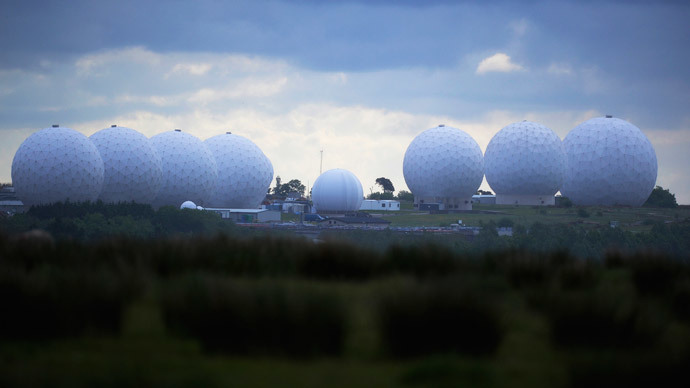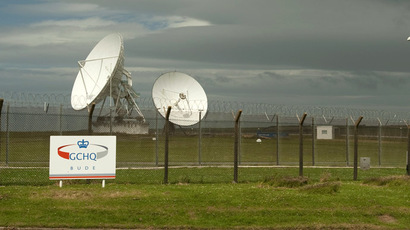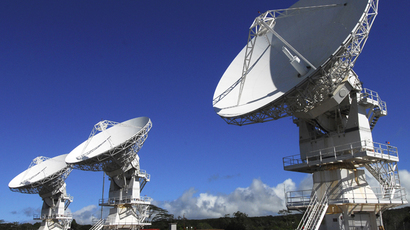GCHQ spying ‘doesn’t breach human rights’ – UK tribunal

Surveillance conducted by British intelligence agency GCHQ does not contravene human rights, a tribunal has heard, despite warnings from civil and internet liberties activists.
The decision was made by the Investigatory Powers Tribunal (IPT), after the case was brought to British courts by a collection of civil liberties groups including Privacy International, Amnesty International and Liberty earlier this year.
According to the IPT, it could only find one area of surveillance procedures that they were concerned about, regarding whether they would breach internet users’ right to privacy.
The groups claimed their private communications may have been monitored by GCHQ’s electronic surveillance program, Tempora, and that international programs, including PRISM – exposed by former NSA contractor Edward Snowden – may have shared their confidential information with British intelligence services.
According to the rights groups, spy agencies may have unlawfully collected data – including metadata that fell outside their legal parameters under the controversial Regulation and Investigatory Powers Act (RIPA), and in turn may have breached the Human Rights Act and the Intelligence Services Act regarding surveillance.
Summarizing the judgment, the Tribunal said: “Save in one possible (and to date hypothetical) respect, we have ruled that the current regime, both in relation to PRISM and Upstream [intercept programs] ... when conducted in accordance with the requirements which we have considered, is lawful and human rights compliant.”

“Technology in the surveillance field appears to be advancing at breakneck speed. This has given rise to submissions that the UK legislation has failed to keep abreast of the consequences of these advances and is ill-fitted to do so; and that in any event parliament has failed to provide safeguards adequate to meet the developments.”
The Tribunal said assumptions that UK spy agencies were able to monitor everything without oversight was incorrect.
During the Tribunal, the government’s senior security officer Charles Farr explained how the UK government could monitor emails or phone calls made abroad, deeming them as “external communications,” although Farr said he “could not confirm or deny” that a spy program called Tempora existed.
“The proceedings forced the government to disclose secret policies governing how foreign intelligence agencies, including the NSA, share information with GCHQ,” said Carly Nyst, Privacy International’s legal director.
“Privacy International believes that the fact that these secret policies are only now public because we have forced their disclosure in court means that such rules could never make the actions of GCHQ in accordance with the law,” she said. “The IPT must find that secret law is not law, and should at the very least rule that all UK access to PRISM was unlawful prior to today.”
Earlier this month, a damning report produced by the Intelligence and Security Committee revealed that GCHQ was receiving more information from the internet than it could feasibly process.














